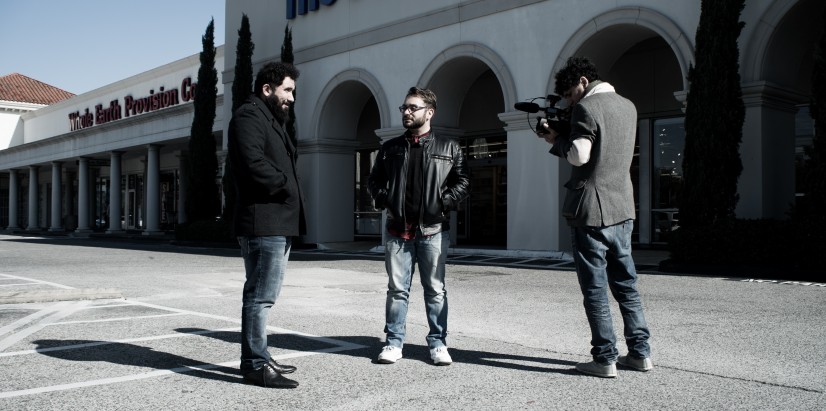Against contemporaneous rhetoric in America, there exists no dichotomy between supporting the needs of refugees, and caring for ourselves. Much to the contrary, there exists a mirror between the two, and all efforts to split them apart are purposeful attempts to mislead, ignore and neglect.
Just weeks after introducing a bill that would give states the right to refuse entry for Muslim refugees from the Middle East, Ted Cruz toured the Daikin Texas Technology Park, a massive facility for air conditioning manufacturing in Waller, Texas. “I was honored to have the opportunity to visit the hardworking men and women here at Daikin,” said Cruz on his April 2017 visit. “That’s because here we know the power of free enterprise and the economic growth that we can create when we get the government off the backs of the job creators and the working men and women of our state.” Unsurprisingly, Cruz failed to recognize the plant for being one of, if not the single largest employers of refugees from Houston.
Our report shows that since the modern system of refugee resettlement was created almost four decades ago, it has not been uncommon for political interests to simultaneously celebrate the contributions of hard-working arrivals, while deconstructing systems to support them. In 1990, when Democrats controlled both the Senate and Congress, federal resettlement went through some of the most drastic reductions in support, eliminating all forms of long-term assistance, such as English language classes and vocation training, in favor of a short-term rapid employment model. That year, then President George H. W. Bush announced the first annual World Refugee Day. Eye-catching outfits and exotic choreographies were used to celebrate the country’s historic commitment to welcoming newcomers, while all plans to ensure their ultimate success were erased.
The precipitous divestment from the long-term productive contributions of refugee families has come alongside a massive shift in the demographics of refugees arriving in America. Moving away from Cold War policies welcoming large numbers of European and Southeast Asian families, the new rapid-employment model has been applied to a much more diverse set of arrivals who come in significantly smaller numbers from the Middle East and Africa. That divestment also echoed a broader trope in American politics, demonizing the poor as a financial burden on the economy. Theories proposed by the Office of Refugee Resettlement in the 1980s claiming that the poor must be forced into work rather than supported with public investment only slightly veiled a treacherous history of racial violence. Now, those same arguments have been slightly altered again, adding questions about national security to pseudo-economics in order to preclude refugees from accessing opportunities to escape minimum-wage labor traps.
If our country’s present moment has failed to depart from its violent history, then what hope do we have for a viable future?
First, we must acknowledge some critical, honest truths. The status quo was not built by President Donald Trump, and it has never been challenged by progressive political leadership. While we may hear debate about the number of refugees being welcomed, this argument is a smokescreen to distract the public from the entrenched realities of the federal system. New arrivals are precluded from getting an education and thus unable to claim their political and social power. They are physically isolated, and their cultures are publically demonized. They are given no choice in the programs through which they are resettled and no information about the opportunities that lay just out of reach. Bipartisan neglect has brought us to this point, and all signs point to the need for alternative systems to set a new standard.
An ethical system cannot be based on a measure of short-term employment, alone. Without giving new arrivals an opportunity to learn English and vital space for mental health recovery, we can be certain that the power dynamics will not change. Without recognizing the unique needs of single mothers, the elderly, and large families, we can be certain that there will be no plans made to support the needs of countless families. Without investing in local community infrastructure to guide new arrivals (as well as other disenfranchised communities) in their long journeys, we can be certain that isolation will only enhance the current atmosphere of fear and mistrust.
The lines between those who are deemed worthy of investment and those who must learn to fend for themselves cannot be pre-drawn based on existing access to wealth. In this sense, the fight for refugee and immigrant rights is the fight for a more productive America, beyond public declarations of welcoming. It is a bet we place on ourselves, on our communities, our youth, our education and on our future.
The morning after Cruz toured Daikin in the spring of 2017, a good friend of ours came home from working a night shift at the same plant. The father of four escaped his native country after criticizing the government, and began working at Daikin within weeks of arrival. “I lost my country,” he said. “I lost my family, my job, my home, my anything. I have no home. Here is my only home. I miss my country but I lost it. I only have this country. I want to work. I want to grow. I have many plans for me and my family. I want to live. Just to live.”
But what life is available to him here?
Given the current system, he is expected to live with minimum-wage work and an ongoing sense of fear for being a Muslim refugee. To recover our moral strength, the U.S. resettlement program and vision must change, acknowledging our shared humanity.

